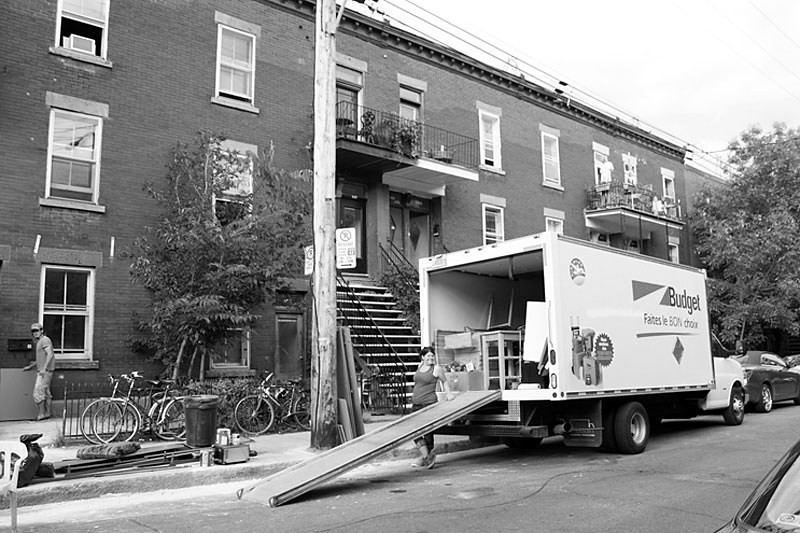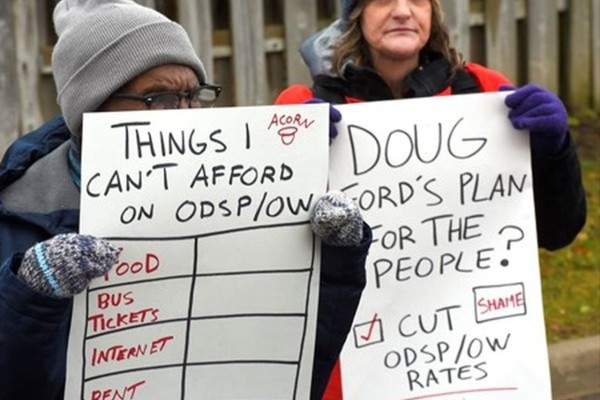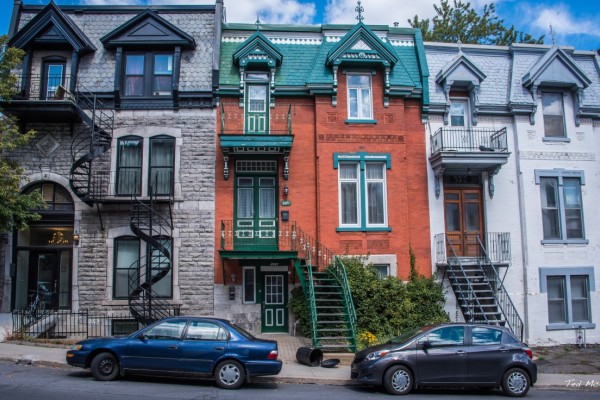The Québec government’s push to ban lease transfers is an act of class warfare
Bill 31 must be resisted

Maison Drolet. Photo by Dimitriy Kruglyak/Flickr.
Last Friday, Québec saw the tabling of the ruling CAQ’s long-awaited Bill 31, which purports to remedy the ongoing housing crisis through various minor changes in provincial housing regulations. The proposed legislation is as untimely as it is tone-deaf: it aims to eliminate lease transfers across the province at a time when average rents have increased by over 20 percent in some places, including a 54.4 percent increase in Granby in the past year. This bid to eliminate one of the only remaining safeguards for affordable rents in Québec could spell disaster for tenants across the province in the fight for housing affordability. The only people who will benefit are landlords.
Rent controls in Québec operate semi-informally through a system of rent arbitration. Unlike other jurisdictions, where rent controls are uniformly imposed across all units, the only form of permanent rent control applies to current leases. To assure tenants greater long-term security, rent increases are regulated by the province; however, as soon as those tenants leave their rental unit, landlords are free to raise rents as much as they’d like. The lack of vacancy control in the province’s rental laws has contributed significantly to the eviction rate, which rose by 150 percent in 2022 alone, as landlords turn to legal loopholes as well as illegal methods to remove tenants and inflate prices. It also means that tenants have very few ways of effectively combating rising rents, since as soon as a lease finishes the next tenant can be hit with an unlimited price increase.
While new tenants have the right to invoke section G of their lease, which compels landlords to disclose the lowest rent paid by the previous tenant in the year prior to the new lease, many are either unaware of their rights as a tenant or may want to avoid jeopardizing their own housing security - housing tribunal appearances are publicly logged, and future landlords may refuse to rent to you if they see you have invoked section G. Renters also have only two months to invoke the clause before the new, higher rent cost becomes permanent. Ultimately, only two percent of all rent contestations are brought forward by tenants. All of this means that for many renters, the only other option available is often to transfer or swap their lease.
Lease transfers allow renters to find other long-term occupied units with controlled rents in order to maintain similar levels of affordability, rather than searching on the open market where apartments cost several hundred dollars more per month. This means that working-class renters can switch apartments according to their changing needs—for example, a place with more or fewer rooms or in a different neighbourhood—while ensuring that rental rates do not skyrocket once they leave. Often, two renters will swap their leases, giving both a new apartment while landlords retain reliable long-term tenants. Otherwise, tenants can simply transfer their lease to a new tenant upon leaving, making sure that the affordable price is maintained in the long term. Bill 31 would make this impossible: any tenant who tries to transfer a lease could immediately have their lease broken by the landlord. Scrapping lease transfers would thus eliminate one of renters’ only real tools for achieving housing affordability, thus undermining security for renters who are already struggling with inflation.
It’s not entirely clear how the CAQ expects this to help alleviate housing costs. Evidently, this new policy is not motivated by any genuine desire to alleviate the pressure of rising rents. In fact, the housing minister claimed that the reason for scrapping lease swaps is because they are being used to keep rents low. With major tenants’ rights groups being excluded from or ignored in consultations, it’s clear moreover that this is ultimately just the result of tireless lobbying from Québec’s parasitic landlord lobby. This is confirmed by the comments made by the provincial housing minister, which while completely ignoring any of the material impacts such a policy might have, focus instead on how landlords deserve more property rights. According to France-Élaine Duranceau, lease transfers must be abolished as they are “an obstacle to the property rights of property owners.” She complains that “you invest your money in an asset and you don’t even have control over it.”
Language like this is telling of how politicians like housing minister Duranceau view housing: not as an essential public good, but primarily as a financial asset which exists to enrich landowners. Perhaps the minister should consider that these dwellings are places where human beings actually live, that they are essential to a decent existence and that when it comes to housing, that affordability should take priority over higher profits for landlords. Comments like these are to be expected by someone who currently holds untold sums of wealth in real estate investments and previously worked as a real estate broker, with her company having owned over $300 million in real estate assets? Only months before being elected, she bought a five-unit duplex for $500,000 in cash, and then flipped it at $800,000 per unit, alongside a longtime partner who was recently found to be actively lobbying her. The minister’s claims that it’s not up to tenants to regulate rents similarly demonstrate a disconnect from the housing situation in Québec, considering that the regulation of rent increases is in fact entirely dependent on tenants taking their case to the province’s housing tribunal.
The CAQ’s attempt to eliminate lease transfers across the province should raise the alarm for Québec tenants. Instead of proposing constructive solutions to the growing housing crisis, Legault’s government has instead opted to cut funding for one of North America’s most demonstrably successful housing programs, while removing one of the only tools that tenants have for ensuring affordable rents. Policies like these go beyond just missing the mark. They’re blatant acts of class warfare, expressions of a government which operates in the service of private capital rather than of working-class constituents. It should serve as another reminder of the deeply political nature of Canada’s housing crisis, one which will not be solved by waiting for investor-politicians to pass legislation contrary to their own interests, but rather by building power among those who are actually affected and then leveraging that power to bring about change. As long as we continue to treat housing as a financial asset, rather than a right to be fought for and won, politicians will continue to neglect the rental crisis until unaffordability runs Canada’s working class into destitution.
Gavin Armitage-Ackerman is a socialist writer and graduate student at McGill’s School of Urban Planning, where he researches housing.










